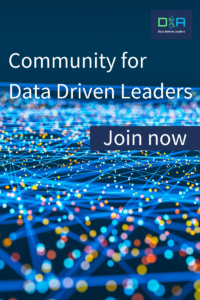The COVID-19 pandemic has proven to be a catalyst for companies to question their data capabilities and to reassess their data management strategy. This article aims to provide guidance in order to achieve Next Generation Data Management and lay out a roadmap to make the transition happen.
This blog post is the second one of two posts describing the current role of SAP MDG and master data management (MDM) initiatives as well as an outlook on how to design a roadmap in order to get more out of your MDM program. This blog post focuses on the future potential and the design of a roadmap on how to transform your MDM program into NextGen DM. If you haven’t read the first post, you can find it here.
Next Generation Data Management: Drivers for Change
Vast amounts of data are being produced and the relevant system landscapes are becoming increasingly complex. Efficiently handling, maintaining, monitoring, analyzing and deleting the data therefore has become an essential task in the daily business of any organization. In order to achieve a state of readiness for this ever-changing and diverse environment, businesses need to initiate new approaches to data management on strategic as well as operational levels. An integral role in this modern data management architecture is described by the Master Data Management (MDM) programs which build the foundation to add and deliver value to a business and help companies stay competitive in their future operating environment.
The majority of future strategic business objectives will need to include the implementation of a Next Generation Data Management (NextGen DM) to stay competitive. In our understanding NextGen DM is the logical adaption of common MDM approaches to a data-driven business model in a distributed environment:
- Value of Data: The ability to manage data effectively can be just as valuable as the insights generated from analyzing the data.
- Extreme Process Automation: The automation of data processing activities can greatly reduce process cost and improve master data quality.
- External Factors: Adaption of data management activities to new requirements set by external factors affecting MDM such as organizational structures, cultural requirements, legal regulations, etc.
- Analytics & Data Science: The application of advanced analytics across master data enables realization of optimization potentials and can reveal synergies across the value chain.
- User Experience: High engagement by users due to great user experience can improve the overall data quality and drive user satisfaction.
Usage of AI to complement MDM activities
In a study conducted by our colleagues from Camelot ITLab, they surveyed leaders in the field of data management across different industries to analyze the current state of master data management programs as well as the market sentiment and future ambitions to achieve NextGen DM.
One example was the utilization of AI to facilitate the master data management approach. When respondents in the survey were asked whether they are investing or are planning to invest in artificial intelligence proof of concepts in order to complement their master data management activities, 80% declined any planned investments. Only 14% of those surveyed have implemented PoCs in AI to improve MDM in their companies, another 6% are planning to implement it in the next 12 months.
The application of advanced technologies such as artificial intelligence describes the next step of data management activities when the fundamental requirements have been met and exceeded. However, these answers indicate there’s plenty of room for improvement with special regard to utilizing artificial intelligence in the field of master data management. This begs the question as to whether the fundamental requirements have not been fully met yet or a lack of ambition causes companies to stand still.
Roadmap to Next Generation Data Management
In conclusion, we at CAMELOT Management Consultants have defined three fields in which concrete next steps have been defined to help guide companies throughout their MDM transformation journey. In particular, these three steps are especially important if you are just starting to rework your overall approach to your MDM landscape. Here in summary:
- Do your “Homework”
- Implement a proper data infrastructure and build your organization so it can utilize the full potential of the current data.
- Improve the overall data quality of your master data as well as transactional data before ingesting further data from external sources.
- Continuously train and empower your employees to create the foundation for a sustainable data management approach and integrate the willingness for proper DM in your daily operational routines.
- Investigate possible tools based on the individual MDM approach and findings within your company to facilitate your efforts.
- Dimension your “Vision”
- Analyze the potential requirements and benefits of (NextGen) MDM for your organization and integrate objectives and milestones into your digital strategy roadmap.
- Set realistic and achievable goals based on the level your organization is currently at and avoid overstretching staff and resource.
- Identify enabler projects and start the process of Digital Transformation and MDM transformation in order to bring your organization up to speed.
- Remodel the process landscape with an eye to potential process automation and the digital strategy roadmap defined in the previous steps.
- Deliver your “Roadmap”
- Measure & improve actions taken to realize the strategic goals as well as adapting your strategy to specific needs along the way.
- Incentivize good behavior, innovative, intrapreneurial/entrepreneurial spirit and foster proactivity.
- Be a role model and leader: Change needs to be lived by the management as much as it needs to be executed by the employees.
We hope the findings have shed some new light on the developments in the field of data management strategy and inspired some of your data management approaches. Don’t hesitate to get in touch with us, whether you have open questions, want to assess your current data management initiative or design the future approach with us.
We would like to thank Christopher Troy for his valuable contribution to this article.

